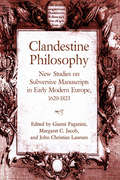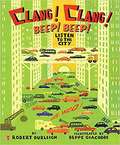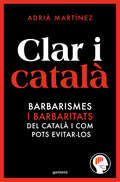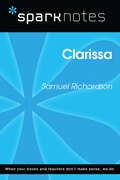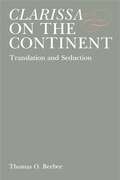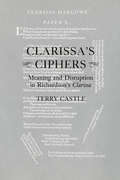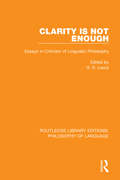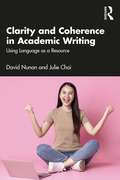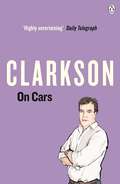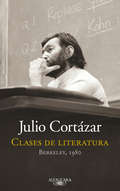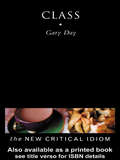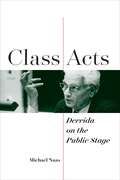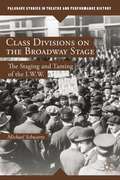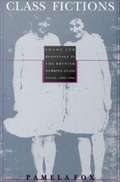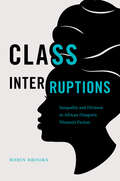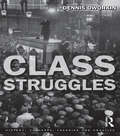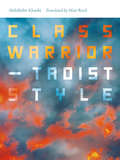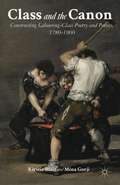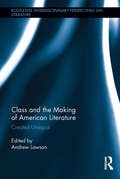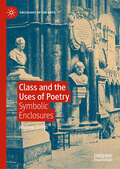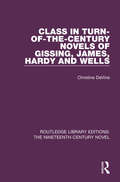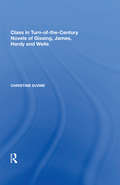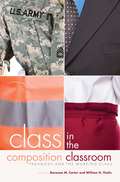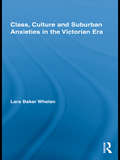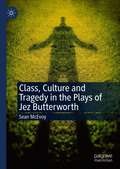- Table View
- List View
Clandestine Philosophy: New Studies on Subversive Manuscripts in Early Modern Europe, 1620–1823 (UCLA Clark Memorial Library Series)
Clandestine philosophical manuscripts, made up of forbidden works including erotic texts, political pamphlets, satires of court life, forbidden religious texts, and books about the occult, had an avid readership in the seventeenth and eighteenth centuries, becoming objects of historical research by the twentieth century. The purveyors of the clandestine could be found in the Dutch Republic, Switzerland, Denmark, Spain, and not least in Paris or London. Despite the heavy risks, including prison, the circulation of these manuscripts was a prosperous venture. After Ira Wade’s pioneering contribution (1938), Clandestine Philosophy is the first work in English entirely focused on the philosophical clandestine manuscripts that preceded and accompanied the birth of the Enlightenment. Topics from philosophy, political and religious thought, and moral and sexual behaviour are addressed by contemporary authors working in both America and Europe. These manuscripts shed light on the birth of pornography and provide an important avenue for investigating philosophical, religious, political, and social critique.
Clang! Clang! Beep! Beep! Listen to the City: Listen To The City (Elementary Core Reading Ser.)
by Robert Burleigh Beppe GiacobbeNIMAC-sourced textbook <P><P>From morning until night, a city is filled with such sounds as the roars and snores of a subway ride, the flutters and coos of pigeons, and the shouts and beeps of drivers in traffic.
Clar i català: Els barbarismes (i barbaritats) més freqüents i com pots evitar-los
by Jo Aprenc Català @joaprenccatalaAra és l’hora de parlar clar i català! Descobreix els barbarismes més comuns i com evitar-los en un llibre imprescindible. 100 BARBARISMES PER APRENDRE A PARLAR MILLOR LA LLENGUA (CATALANA) Parles sovint en català, però de tant en (quant) tant deixes anar un barbarisme? Et (dona apuro) fa vergonya cometre errors però no saps com evitar-los? (Menos mal) Encara sort que tens aquest llibre!Deixa't de (tonteries) ximpleries i comença a (exprimir) esprémer la llengua com mai. Descobreix 100 barbarismes de la llengua catalana, aprèn les seves formes en català i enriqueix el teu vocabulari amb les expressions més genuïnes i divertides de la nostra llengua. HA ARRIBAT L'HORA DE DONAR UNA (PATADA) PUNTADA DE PEU ALS BARBARISMES I PARLAR LA LLENGUA COM CAL!
Clarissa (SparkNotes Literature Guide Series)
by SparkNotesClarissa (SparkNotes Literature Guide) by Samuel Richardson Making the reading experience fun! Created by Harvard students for students everywhere, SparkNotes is a new breed of study guide: smarter, better, faster.Geared to what today's students need to know, SparkNotes provides:chapter-by-chapter analysis explanations of key themes, motifs, and symbols a review quiz and essay topics Lively and accessible, these guides are perfect for late-night studying and writing papers.
Clarissa on the Continent: Translation and Seduction (G - Reference, Information and Interdisciplinary Subjects)
by Thomas O. Beebee"Clarissa" on the Continent defines and explores two strategies of literary translation—creative vs. preservative and strong vs. weak—as they transform one of the most influential English novels. Thomas Beebee compares the two opposing strategies as they influence the French translation of Clarissa by the novelist Antione François de Prévost and the German translation by the Göttingen Orientalist Johann David Michaelis, and in doing so he demonstrates that each translator found authority for his procedure within the text itself. Each translation is also examined in light of Richardson's other writings and placed in its literary and cultural context. This study uses translations in order to interpret Clarissa, to show how the basis for the novel's reception on the Continent was laid, and to explore the differences and interactions among three literary and cultural systems of the eighteenth century. The close examination of these two important translations enable the formulation of not only a theory of creative vs. preservative translation but also the interconnections between literary theory and translation theory. Beebee also looks at later translations of Clarissa as products of literary and historical change and at Prévostian strategies of the novel.
Clarissa's Ciphers: Meaning and Disruption in Richardson's Clarissa
by Terry CastleAs Samuel Richardson's 'exemplar to her sex,’ Clarissa in the eponymous novel published in 1748 is the paradigmatic female victim. In Clarissa’s Ciphers, Terry Castle delineates the ways in which, in a world where only voice carries authority, Clarissa is repeatedly silenced, both metaphorically and literally. A victim of rape, she is first a victim of hermeneutic abuse. Drawing on feminist criticism and hermeneutic theory, Castle examines the question of authority in the novel. By tracing the patterns of abuse and exploitation that occur when meanings are arbitrarily and violently imposed, she explores the sexual politics of reading.
Clarity Is Not Enough: Essays in Criticism of Linguistic Philosophy (Routledge Library Editions: Philosophy Of Language Ser.)
by H. D. LewisThis book, originally published in 1963 provides a sample of the criticisms of philosophers on the course of linguistic philosophy. A chronological ordr is followed, with work ranging from that of traditionalist thinkers to second thoughts about linguistic philosophy on the part of writers who have been influenced by the movement.
Clarity and Coherence in Academic Writing: Using Language as a Resource
by David Nunan Julie ChoiThis book presents a lively, rich, and concise introduction to the key concepts and tools for developing clarity and coherence in academic writing. Well-known authors and linguists David Nunan and Julie Choi argue that becoming an accomplished writer is a career-long endeavor. They describe and provide examples of the linguistic procedures that writers can draw on to enhance clarity and coherence for the reader. Although the focus is on academic writing, these procedures are relevant for all writing. This resource makes complex concepts accessible to the emergent writer and illustrates how these concepts can be applied to their own writing. The authors share examples from a wide range of academic and non-academic sources, from their own work, and from the writing of their students. In-text projects and tasks invite you, the reader, to experiment with principles and ideas in developing your identity and voice as a writer.
Clarkson on Cars
by Jeremy ClarksonJeremy Clarkson gets under the bonnet in Clarkson on Cars - a collection of his motoring journalism.Jeremy Clarkson has been driving cars, writing about them and occasionally voicing his opinions on the BBC's Top Gear for twenty years.No one in the business is taller.In this collection of classic Clarkson, stretching back to the mid-1980s, he's pulled together the car columns and stories with which he made his name. As coal mines closed and house prices exploded to a soundtrack of men in make-up playing synthesizers, Jeremy was already waxing lyrical on topics as useful and diverse as:* The perils of bicycle ownership * Why Australians - not Brits - need bull bars* Why soon only geriatrics will be driving BMWs* The difficultly of deciding on the best car for your wedding * Why Jesus's dad would have owned a Nissan Bluebird * And why it is that bus lanes cause traffic jamsIrreverent, damn funny and offensive to almost everyone, this is writing with its foot to the floor, the brake lines cut and the speed limit smashed to smithereens. Sit back and enjoy the ride. Praise for Jeremy Clarkson:'Brilliant . . . laugh-out-loud' Daily Telegraph'Outrageously funny . . . will have you in stitches' Time Out'Very funny . . . I cracked up laughing on the tube' Evening Standard
Clases de Literatura: Berkeley, 1980
by Julio CortázarCortázar inédito. El Cortázar que nos quedaba por conocer, este que entra en el aula y sonríe. Berkeley, California, otoño de 1980. En la cima de su carrera y después de años de negativas, Julio Cortázar acepta dar un curso universitario de dos meses en los Estados Unidos. Como cabía esperar, no se tratará de conferencias magistrales sino de una serie de charlas sobre literatura, y sobre todo acerca de su experiencia de escritor y la génesis de sus obras. Las clases tratan gran diversidad de temas: aspectos del cuento fantástico; la musicalidad, el humor, el erotismo y lo lúdico en la literatura; la imaginación y el realismo, la literatura social y las trampas del lenguaje, todos ellos encarnados en lecturas y ejemplos tomados de la cultura universal. Las clases llegan a su punto máximo de interés cuando Cortázar, ya en la edad de los balances, se refiere a su evolución de escritor y analiza su obra: cómo nacieron los cronopios y cuentos insuperables como "La noche boca arriba" o "Continuidad de los parques"; el sentido de Rayuela y su proceso de escritura; el desafío de Libro de Manuel. Quien lea la minuciosa y fiel transcripción de trece horas de grabaciones, al cabo de este encuentro con el Cortázar oral, valorará lo mismo que en sus textos: la soltura y cercanía, la vastedad de lecturas, la honestidad intelectual, la imaginación y el rigor de tamaño profesor.
Class (The New Critical Idiom)
by Gary DayThis book traces the phenomenon of class from the medieval to the postmodern period, uniquely examining its relevance to literary and cultural analysis. Drawing on historical, sociological and literary writings, Gary Day:* gives an account of class at different historical moments* shows the role of class in literary constructions of the social* examines the complex relations between 'class' and 'culture'* focuses attention on the role of class in constructions of 'the literary' and 'the canon'* employs a revived and revised notion of class to critique recent theoretical movements.
Class Acts: Derrida on the Public Stage (Perspectives in Continental Philosophy)
by Michael NaasClass Acts examines two often neglected aspects of Jacques Derrida’s work as a philosopher, his public presentations at lectures and conferences and his teaching, along with the question of the “speech act” that links them. What, Michael Naas asks, is one doing when one speaks in public in these ways?The book follows Derrida’s itinerary with regard to speech act theory across three public lectures, from 1971 to 1997, all given, for reasons the book seeks to explain, in Montreal. In these lectures, Derrida elaborated his critique of J. L. Austin and his own subsequent redefinition of speech act theory. The book then gives an overview of Derrida’s teaching career and his famous “seminar” presentations, along with his own explicit reflections on pedagogy and educational institutions beginning in the mid-1970s. Naas then shows through a reading of three recently published seminars—on life death, theory and practice, and forgiveness—just how Derrida the teacher interrogated and deployed speech act theory in his seminars. Whether in a conference hall or a classroom, Naas demonstrates, Derrida was always interested in the way spoken or written words might do more than simply communicate some meaning or intent but might give rise to something like an event. Class Acts bears witness to the possibility of such events in Derrida’s work as a pedagogue and a public intellectual.
Class Divisions on the Broadway Stage
by Michael SchwartzExamining twenty-five years of theatre history, this book covers the major plays that feature representations of the Industrial Workers of the World. American class movement and class divisions have long been reflected on the Broadway stage and here Michael Schwartz presents a fresh look at the conflict between labor and capital.
Class Fictions: Shame and Resistance in the British Working-Class Novel, 1890-1945
by Pamela FoxMany recent discussions of working-class culture in literary and cultural studies have tended to present an oversimplified view of resistance. In this groundbreaking work, Pamela Fox offers a far more complex theory of working-class identity, particularly as reflected in British novels of the late nineteenth and early twentieth centuries. Through the concept of class shame, she produces a model of working-class subjectivity that understands resistance in a more accurate and useful way--as a complicated kind of refusal, directed at both dominated and dominant culture. With a focus on certain classics in the working-class literary "canon," such as The Ragged Trousered Philanthropists and Love on the Dole, as well as lesser-known texts by working-class women, Fox uncovers the anxieties that underlie representations of class and consciousness. Shame repeatedly emerges as a powerful counterforce in these works, continually unsettling the surface narrative of protest to reveal an ambivalent relation toward the working-class identities the novels apparently champion. Class Fictions offers an equally rigorous analysis of cultural studies itself, which has historically sought to defend and value the radical difference of working-class culture. Fox also brings to her analysis a strong feminist perspective that devotes considerable attention to the often overlooked role of gender in working-class fiction. She demonstrates that working-class novels not only expose master narratives of middle-class culture that must be resisted, but that they also reveal to us a need to create counter narratives or formulas of working-class life. In doing so, this book provides a more subtle sense of the role of resistance in working class culture. While of interest to scholars of Victorian and working-class fiction, Pamela Fox's argument has far-reaching implications for the way literary and cultural studies will be defined and practiced.
Class Interruptions: Inequality and Division in African Diasporic Women's Fiction
by Robin BrooksAs downward mobility continues to be an international issue, Robin Brooks offers a timely intervention between the humanities and social sciences by examining how Black women's cultural production engages debates about the growth in income and wealth gaps in global society during the late twentieth and early twenty-first centuries. Using an interdisciplinary approach, this innovative book employs major contemporary texts by both African American and Caribbean writers—Toni Morrison, Gloria Naylor, Dawn Turner, Olive Senior, Oonya Kempadoo, Merle Hodge, and Diana McCaulay—to demonstrate how neoliberalism, within the broader framework of racial capitalism, reframes structural inequalities as personal failures, thus obscuring how to improve unjust conditions. Through interviews with authors, textual analyses of the fiction, and a diagramming of cross-class relationships, Brooks offers compelling new insight on literary portrayals of class inequalities and division. She expands the scope of how the Black women's literary tradition, since the 1970s, has been conceptualized by repositioning the importance of class and explores why the imagination matters as we think about novel ways to address long-standing and simultaneously evolving issues.
Class Struggles (History: Concepts,Theories and Practice)
by Dennis L. DworkinIn the 1960s and 1970s the study of history and sociology was heavily influenced by Marxism and theories of class. But the collapse of Communism and significant changes in culture and society threw the study of class into crisis. Its most basic premises were called into question. More recently accelerating globalisation, proliferating multinational corporations and unbridled free-market capitalism have given the study of class a new significance and caused historians and sociologists to revisit the debate.This book looks at the changes that caused the crisis in the study of class and shows how new, vibrant theories have appeared that will drive forward our understanding of history and sociology.
Class Warrior—Taoist Style
by Matt Reeck Abdelkéir KhatibiAbdelkébir Khatibi (1938–2009) is one of the most important writers and thinkers to emerge from North Africa in the second half of the twentieth century. Though not widely known beyond the Francophone world, Khatibi’s critical and creative works speak to the central concerns of postcolonial and postmodern life. Offered here in English for the first time, his long poem from 1976, Le lutteur de classe à la manière taoïste is a wildly inventive, transgressive, and important text. Class Warrior delivers a kind of free-verse Marxist handbook, written with the energy, movement, and style of a highly idiosyncratic Taoism. Matt Reeck’s compelling translation captures the stylistic and thematic beats of Khatibi’s verse, rendering the deceptively simple language of the original without losing its extraordinary layers and complexities. The introduction provides biographical context and an overview of Khatibi’s poetics of the orphan, a subject position that seeks to avoid authenticating notions of origins and that is also constantly restless and forever questing. This is a rich text for contemporary readers of poetry, as well as scholars of postcolonial theory.
Class and the Canon
by Kirstie Blair Mina GorjiExamining how labouring-class poets constructed themselves and were constructed by critics as part of a canon, and how they situated their work in relation to contemporaries and poets from earlier periods, this book highlights the complexities of labouring-class poetic identities in the period from Burns to mid-late century Victorian dialect poets.
Class and the Making of American Literature: Created Unequal (Routledge Interdisciplinary Perspectives on Literature)
by Andrew LawsonThis book refocuses current understandings of American Literature from the revolutionary period to the present-day through an analytical accounting of class, reestablishing a foundation for discussions of class in American culture. American Studies scholars have explored the ways in which American society operates through inequality and modes of social control, focusing primarily on issues of status group identities involving race/ethnicity, gender, sexuality, and disability. The essays in this volume focus on both the historically changing experience of class and its continuing hold on American life. The collection visits popular as well as canonical literature, recognizing that class is constructed in and mediated by the affective and the sensational. It analyzes class division, class difference, and class identity in American culture, enabling readers to grasp why class matters, as well as the economic, social, and political matter of class. Redefining the field of American literary cultural studies and asking it to rethink its preoccupation with race and gender as primary determinants of identity, contributors explore the disciplining of the laboring body and of the emotions, the political role of the novel in contesting the limits of class power and authority, and the role of the modern consumer culture in both blurring and sharpening class divisions.
Class and the Uses of Poetry: Symbolic Enclosures (Sociology of the Arts)
by Andrew SmithThis book provides new empirical evidence about the ways in which social inequalities, especially those of class, shape and delimit forms of cultural reception and creative opportunity. How does it come about that, in George Orwell’s words, ‘the divorce between poetry and popular culture is accepted as a sort of law of nature’? Drawing on qualitative research conducted in and around Glasgow, Poetry, Class and Symbolic Violence explores how working-class readers engaged with, made sense of, and contested a sense of exclusion from, contemporary poetry. In doing so it sheds light on the symbolic enclosure of poetry, on how that enclosure takes shape in the encounter between readers and poems, but also on why poetry continues to matter. Through these conversations, and in further interviews with unpublished poets, it reflects on the creative and expressive affordances of poetry, on what can be done with poetry and what it can make possible. Sociologists have had little to say about poetry as a distinctive esthetic practice. Poetry, Class and Symbolic Violence tries to break that silence and to make a start on constructing a critical sociology of poetry for today.
Class in Turn-of-the-Century Novels of Gissing, James, Hardy and Wells (Routledge Library Editions: The Nineteenth-Century Novel #10)
by Christine DeVineFirst published in 2005, this book argues that, due to political and ideological shifts in the last decades of the nineteenth century a new depiction of social class was possible in the English novel. Late-century writers such as Gissing, James, Hardy and Wells question the middle-class Victorian views of class that had dominated the novel for decades through the disruption of traditional novelistic conventions. With reference to relevant maps, journalism, artwork, photography and specific historical events, this book contextualizes novels by these writers within their historical moment. In doing so, it illuminates the relationship between fiction and history in the late nineteenth- and early twentieth century fiction. This book will be of interest to those studying late nineteenth-century literature and history.
Class in Turn-of-the-Century Novels of Gissing, James, Hardy and Wells (Routledge Library Editions: The Nineteenth-century Novel Ser. #10)
by Christine DeVineThis book argues that, due to political and ideological shifts in the last decades of the nineteenth century-a time when the class system in England was in a state of flux-a new depiction of social class was possible in the English novel. Late-century writers such as Gissing, James, Hardy and Wells question the middle-class Victorian views of class that had dominated the novel for decades. By disrupting traditional novelistic conventions, these writers reveal the ideology of the historical moment in which those conventions obtained, thereby questioning the 'naturalness' of class assumed by earlier, middle-class Victorian writers. The book contextualizes novels by these writers within their historical moment with reference to relevant maps, journalism, artwork or photography, and specific historical events. It illuminates the relationship between fiction and history in late nineteenth- and early twentieth-century fiction, and especially the relationship between changing depictions of class and the development of realism. Examining the nineteenth-century English novel through the lens of social class allows the twenty-first century critic and student not only to understand the issues at stake in much Victorian fiction, but also to recognize powerful present-day vestiges of this social class system.
Class in the Composition Classroom: Pedagogy and the Working Class
by Genesea M. Carter and William H. ThelinClass in the Composition Classroom considers what college writing instructors should know about their working-class students—their backgrounds, experiences, identities, learning styles, and skills—in order to support them in the classroom, across campus, and beyond. In this volume, contributors explore the nuanced and complex meaning of “working class” and the particular values these college writers bring to the classroom. The real college experiences of veterans, rural Midwesterners, and trade unionists show that what it means to be working class is not obvious or easily definable. Resisting outdated characterizations of these students as underprepared and dispensing with a one-size-fits-all pedagogical approach, contributors address how region and education impact students, explore working-class pedagogy and the ways in which it can reify social class in teaching settings, and give voice to students’ lived experiences. As community colleges and universities seek more effective ways to serve working-class students, and as educators, parents, and politicians continue to emphasize the value of higher education for students of all financial and social backgrounds, conversations must take place among writing instructors and administrators about how best to serve and support working-class college writers. Class in the Composition Classroom will help writing instructors inside and outside the classroom prepare all their students for personal, academic, and professional communication. Contributors: Aaron Barlow, Cori Brewster, Patrick Corbett, Harry Denny, Cassandra Dulin, Miriam Eisenstein Ebsworth, Mike Edwards, Rebecca Fraser, Brett Griffiths, Anna Knutson, Liberty Kohn, Nancy Mack, Holly Middleton, Robert Mundy, Missy Nieveen Phegley, Jacqueline Preston, James E. Romesburg, Edie-Marie Roper, Aubrey Schiavone, Christie Toth, Gail G. Verdi
Class, Culture and Suburban Anxieties in the Victorian Era (Routledge Studies in Nineteenth Century Literature)
by Lara Baker WhelanThis book demonstrates how representations of the Victorian suburb in mid- to late-nineteenth century British writing occasioned a literary sub-genre unique to this period, one that attempted to reassure readers that the suburb was a place where outsiders could be controlled and where middle-class values could be enforced. Whelan explores the dissonance created by the differences between the suburban ideal and suburban realities, recognizing the persistence of that ideal in the face of abundant evidence that it was hardly ever realized. She discusses evidence from primary and secondary sources about perceptions and realities of suburban living, showing what it meant to live in a "real" Victorian suburb. The book also demonstrates how the suburban ideal (with its elements of privacy, cleanliness, rus in urbe, and respectability), in its relation to culturally embedded ideas about the Beautiful and Picturesque, gained such a strong foothold in the Victorian middle class that contemplating its failure caused intense anxiety. Whelan goes on to trace the ways in which this anxiety is represented in literature.
Class, Culture and Tragedy in the Plays of Jez Butterworth
by Sean McEvoyJez Butterworth is undoubtedly one of the most popular and commercially successful playwrights to have emerged in Britain in the early twenty-first century. This book, only the second so far to have been written on him, argues that the power of his most acclaimed work comes from a reinvigoration of traditional forms of tragedy expressed in a theatricalized working-class language. Butterworth’s most developed tragedies invoke myth and legend as a figurative resistance to the flat and crushing instrumentalism of contemporary British political and economic culture. In doing so they summon older, resonant narratives which are both popular and high-cultural in order to address present cultural crises in a language and in a form which possess wide appeal. Tracing the development of Butterworth’s work chronologically from Mojo (1995) to The Ferryman (2017), each chapter offers detailed critical readings of a single play, exploring how myth and legend become significant in a variety of ways to Butterworth’s presentation of cultural and personal crisis.
